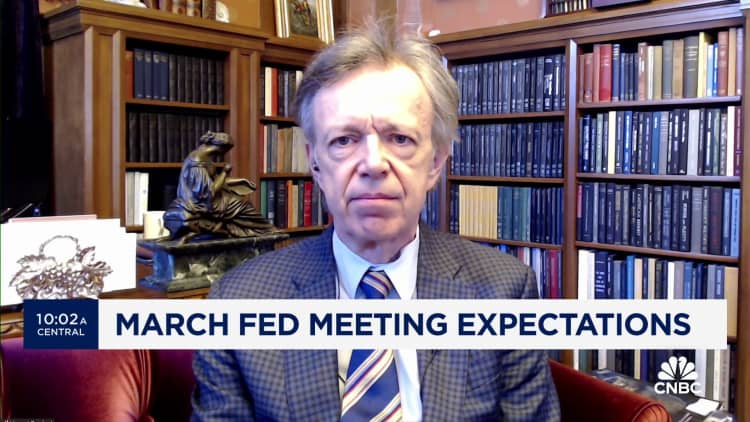Secretary of State Antony J. Blinken launched a diplomatic push in the Middle East on Monday for a deal that would pause the war in Gaza and release the hostages there, even as a drone hit a military base used by American troops and allied forces in the east Syria.
Mr. Blinken made his fifth trip to the region since the October 7 attack on Israel and met with Saudi Arabia’s Crown Prince Mohammed bin Salman in Riyadh. This was the first stop on a trip that also included meetings in Egypt, Qatar, Israel and the West Bank.
Speaking to the crown prince, the kingdom’s de facto ruler, Mr. Blinken “emphasized the importance of meeting humanitarian needs in Gaza and preventing further spread of the conflict,” the State Department said. They added that they discussed “a permanent end to the crisis in Gaza that provides lasting peace and security for Israelis and Palestinians alike.”
Mr. Blinken hopes to work out an agreement that could temporarily end the war between Israel and Hamas in the Gaza Strip, ensure the release of hostages remaining there in exchange for Palestinians held in Israeli prisons and allow much-needed aid to flow into the territory.
But just as Mr. Blinken was trying to ease tensions in the region, a drone hit a base in eastern Syria where American and allied troops were stationed, killing six Kurdish fighters, according to the official media outlet of the Syrian Democratic Forces, a Kurdish-led group .
Maj. Gen. Patrick S. Ryder, a Pentagon spokesman, said no U.S. injuries were reported as a result of the drone strike.
The Syrian Democratic Forces blamed an Iran-linked militia group for the attack. This would be the latest in a series of attacks by Iranian-backed militias since the start of Israel’s war against Hamas.
For the past decade, the Syrian Democratic Forces, made up of fighters from the local Kurdish ethnic minority, have operated in eastern Syria with support from a U.S.-led international coalition that needed a local partner to fight the Islamic State group. Although ISIS was largely defeated there, a limited number of American troops remained on the ground.
American forces in the region have been repeatedly attacked by Iran-backed militant groups in recent months, as the groups have attacked bases and troops in Iraq, Syria and Jordan, as well as on U.S.-owned ships in the Red Sea.
The United States and its allies responded with several airstrikes, including some over the weekend against a militia in Yemen in response to the ship attacks and on Friday against targets in Syria and Iraq in response to a drone strike that killed three U.S. soldiers in Jordan.
The Biden administration has said it does not want to engage in direct military conflict with Iran. Iranian officials have also said they want to avoid a major war but warned they would respond in the event of an attack.
“Iran is not trying to increase tensions and crisis in the region – we do not support tensions and chaos,” an Iranian foreign ministry spokesman, Nasser Kanaani, said on Monday. “Iran has shown that it will respond forcefully to any threat to its sovereignty and will not hesitate to use all of its capabilities to obtain a response that will bring it regret.”
Analysts and American officials said Iran exercises varying degrees of control over the armed groups it supports in the region. And analysts have warned that both sides risk the attacks spiraling out of control.
Fearing a larger war, Israeli forces advanced Monday toward Rafah, a southern Gaza town that is a main entry point for aid deliveries and a refuge for hundreds of thousands of Palestinians forced from their homes at the start of the war.
On Monday, Yoav Gallant, Israel’s defense minister, called Rafah “the last stronghold of Hamas.”
“Any terrorist hiding in Rafah should know that they will end up the same as those in Khan Younis, Gaza or any other place in the Gaza Strip,” Gallant said, referring to other towns in the area controlled by Israelis armed forces were bombed. “Surrender or death – there is no third option.”
Turning to Rafah could increase international pressure on Israel, including from its closest allies, over the safety and well-being of civilians.
At a news conference in Washington on Monday, Vedant Patel, a US State Department spokesman, noted that Rafah was an important channel for humanitarian assistance and a place where Americans and other foreign citizens could leave Gaza and enter Egypt. He also pointed out that more than a million people are seeking refuge there.
“So we obviously want any operation in this region to take that into account,” he said.
According to Israeli officials, Israel invaded Gaza after Hamas-led gunmen killed about 1,200 people in Israel and kidnapped another 240 in a cross-border attack on October 7. Since then, more than 27,000 people in the Gaza Strip have been killed by Israeli military operations, according to the territory’s health ministry.
Israel has said its troops will continue fighting in Gaza until Hamas is defeated and the remaining hostages, believed to number more than 100, are released.
As war casualties have mounted, American diplomats have tried to negotiate some sort of respite from the fighting, including through repeated trips by Mr. Blinken to the region.
As of Monday evening, the United States had nothing to publicly announce regarding a hostage-taking and cease-fire agreement. A Hamas-affiliated channel Al-Aqsa reported on Sunday that the group was still considering the proposal a week after it was formulated.
In Saudi Arabia, too, the Biden administration hopes to push the country to establish diplomatic relations with Israel, a long-term goal that the United States considers important to stabilizing the Middle East.
Under a proposed deal, the United States would offer Saudi Arabia a defense contract, help with a civilian nuclear program and increase arms sales, while the Saudis and Americans would theoretically get Israel to accept terms for concrete steps toward creating a Palestinian state in return for recognizing Saudi Arabia.
But even as much of the world called on Israel to ease humanitarian aid in Gaza, the United Nations launched an investigation into the main aid agency for Palestinians in the area, sparked by Israel’s accusation that 12 of the agency’s employees joined the attack on March 7. October or its consequences connected.
On Monday, the United Nations appointed Catherine Colonna, a former French foreign minister, to lead a review of UNRWA. Israel’s accusations led at least 12 countries, including the United States and Germany, the two largest donors, to suspend funding to the organization.
The review will “assess whether the agency is doing everything within its power to ensure neutrality and respond to allegations of serious violations when they are raised,” the United Nations said.
Leily Nikounazar, Michael D. Shear and Aaron Boxerman contributed reporting.
Source link
2024-02-06 01:44:18
www.nytimes.com















